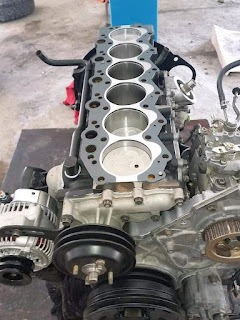Understanding the Importance of Quality Auto Parts
When it comes to maintaining your vehicle, using high-quality auto parts is crucial for ensuring its performance, safety, and longevity. From filters and spark plugs to brake pads and belts, every component plays a vital role in keeping your car running smoothly. By investing in top-notch auto parts, you can avoid costly repairs and breakdowns while enjoying a more efficient and reliable driving experience.
Choosing the Right Auto Parts for Your Vehicle
1. Researching Your Vehicle's Needs
Before purchasing auto parts, it's essential to understand the specific requirements of your vehicle. Refer to your owner's manual or consult with a trusted mechanic to determine the exact specifications and compatible parts for your car. By knowing the make, model, and year of your vehicle, you can narrow down your options and make informed decisions.
2. Evaluating Quality and Reliability
When shopping for auto parts, prioritize quality and reliability over price. Opt for reputable brands and suppliers known for producing durable and performance-oriented components. While cheaper alternatives may seem appealing, they often lack the durability and precision needed to keep your vehicle running optimally.
3. Seeking Professional Advice
If you're uncertain about which auto parts to choose, don't hesitate to seek advice from experienced professionals. Qualified mechanics and automotive specialists can offer valuable insights and recommendations based on your vehicle's specific needs, ensuring that you select the most suitable parts for your car.
The Benefits of Investing in Premium Auto Parts
1. Enhanced Performance and Efficiency
Premium auto parts are designed to deliver superior performance, resulting in improved fuel efficiency, power, and overall driving dynamics. By choosing high-quality components, you can elevate your vehicle's capabilities and enjoy a smoother, more responsive driving experience.
2. Extended Longevity and Durability
With premium auto parts, you can expect greater durability and longevity compared to their lower-quality counterparts. These components are engineered to withstand rigorous conditions and maintain their functionality over an extended period, reducing the frequency of replacements and repairs.
3. Improved Safety and Reliability
When it comes to vehicle safety, the quality of auto parts is non-negotiable. Premium components adhere to strict quality standards, contributing to enhanced safety features and overall reliability. By prioritizing safety-critical parts such as brakes and suspension components, you can ensure a secure and worry-free driving experience.
Conclusion
Investing in top-quality auto parts is a fundamental aspect of preserving your vehicle's performance, safety, and longevity. By conducting thorough research, prioritizing quality and reliability, and seeking professional guidance when necessary, you can make informed decisions and select the best components for your vehicle. Remember, when it comes to auto parts, the right choice can make a significant difference in your driving experience and the overall well-being of your vehicle.
Learn more
